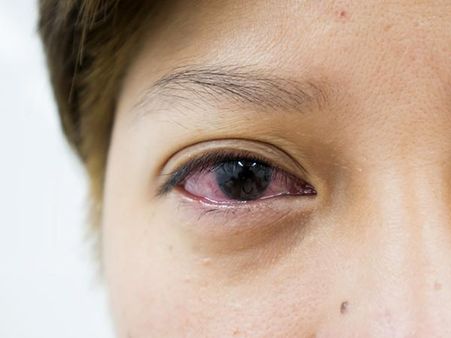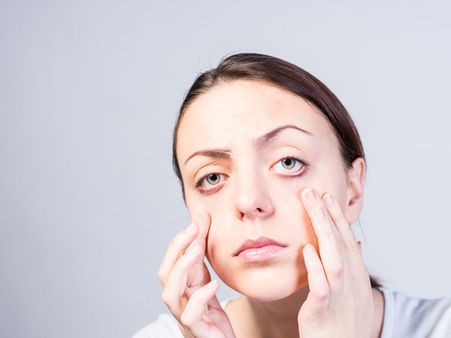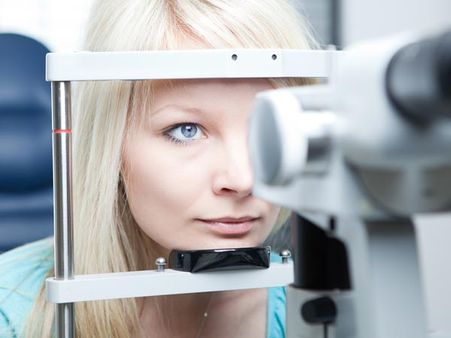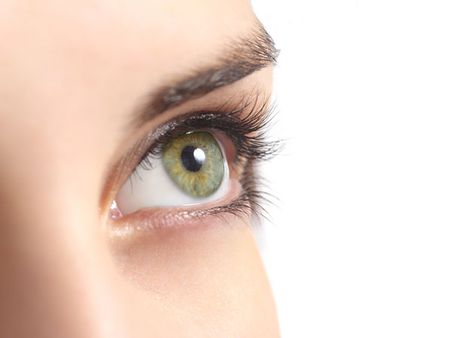Just In
- 6 hrs ago

- 8 hrs ago

- 8 hrs ago

- 9 hrs ago

Don't Miss
- Finance
 No Onboarding Of New Customers Via Online, Mobile Banking From April 24 At Kotak Bank; RBI Issues Ban
No Onboarding Of New Customers Via Online, Mobile Banking From April 24 At Kotak Bank; RBI Issues Ban - Sports
 Most Runs in IPL 2024, Orange Cap Holder: Top 10 Highest Run Scorers And Team-wise Top 5 Batters On April 24
Most Runs in IPL 2024, Orange Cap Holder: Top 10 Highest Run Scorers And Team-wise Top 5 Batters On April 24 - Movies
 Dance Deewane 4: Karisma Kapoor Gives Epic Reaction Witnessing Little Contestant’s On-point Expressions, Watch
Dance Deewane 4: Karisma Kapoor Gives Epic Reaction Witnessing Little Contestant’s On-point Expressions, Watch - News
 INDIA Bloc's One Year-One PM Formula Will Destroy Country: PM Modi
INDIA Bloc's One Year-One PM Formula Will Destroy Country: PM Modi - Technology
 iQOO Z9 Turbo Launched in China: Snapdragon 8s Gen 3, 16GB RAM, and More
iQOO Z9 Turbo Launched in China: Snapdragon 8s Gen 3, 16GB RAM, and More - Education
 MP Board Class 10th, 12th Results 2024, Know Alternative Ways to Check Your Result
MP Board Class 10th, 12th Results 2024, Know Alternative Ways to Check Your Result - Automobiles
 Aston Martin Vantage Launched In India At Rs 3.99 Crore
Aston Martin Vantage Launched In India At Rs 3.99 Crore - Travel
 Mumbai Opens BMC Headquarters For Exclusive Heritage Tour
Mumbai Opens BMC Headquarters For Exclusive Heritage Tour
Can Psoriasis Affect Your Eyes?
Psoriasis is a condition wherein skin cells build up to form scaly, dry, itchy patches. However, this ailment is much beyond just a simple skin disease. One of the prime concerns is how it affects the health of your eyes. Psoriasis skin flare-ups around the eyes can lead to eye sight-related issues. Psoriasis around the eyes can lead to uveitis and iritis. Read on to know more about these conditions and its treatment.
What Is Uveitis?
The middle layer of the eye's surface is called uvea. An inflammation of this part is called uveitis. The uvea also consists of the iris. In case the uveitis is localized at the front portion of the eye, then the condition turns into iritis, also otherwise referred to as anterior uveitis.

Uveitis could occur in the form of being localized to the ciliary body. This is the part that produces the fluid that fills up our eyes (aqueous humour). Uveitis could also be localized around the choroid. This is the part containing small blood vessels, present behind the retina.

Based on where it is localized, uveitis can be classified as:
•
Anterior
uveitis:
Inflammation
of
just
the
iris
or
iris
along
with
the
ciliary
body.
•
Intermediate
uveitis:
Inflammation
of
the
ciliary
body.
•
Posterior
uveitis:
Inflammation
of
the
choroid.
•
Diffuse
uveitis:
Inflammation
of
all
the
portions
of
the
uvea.

Symptoms of uveitis
The
following
are
some
of
the
symptoms
of
uveitis:
•
Sensitivity
to
bright
lights
•
Redness
of
eye
•
Blurry
vision
•
Appearance
of
floaters
in
the
field
of
vision
•
Pain
in
the
eye


Treatment of uveitis
An ophthalmologist will examine your eyes to reach a diagnosis. Your doctor might also want to discuss the issue with the doctor who has been treating you for psoriasis.
Ideally, corticosteroid eye drops can be given to reduce the inflammation. In the case of recurring symptoms, a systemic drug to suppress your immune system may be needed. This would be able to fight the root cause of the inflammation. Surgery might be necessary in case cataract or glaucoma is detected along with uveitis.
Leaving uveitis untreated can lead to irreversible damages as the eye tissues are highly delicate. Therefore, early detection is essential. When uveitis occurs in association with psoriasis, then the person is believed to have more recurrent issues with uveitis when compared to it occurring without psoriasis.
A long-acting corticosteroid drug implant called dexamethasone intravitreal implant has been approved for the treatment of non-infectious uveitis, wherein it has affected the back segment of the eye. These implants are FDA approved.
In case of anterior uveitis, in addition to steroids, pupil-dilating eye drops can be prescribed to reduce pain. Eye drops might also be required to reduce the intraocular pressure in case you have developed high eye pressure that usually occurs due to uveitis.

What Is Iritis?
Iris is the pigmented membrane that provides the eye its colour. The iris is responsible for controlling the amount of light that enters the pupil. When the iris becomes inflamed as a result of psoriasis, it is called iritis.
Psoriasis is a disease that occurs when the body's immune system attacks its own healthy tissues. Iritis can occur as a result of this ailment. Iritis is similar to uveitis. Iritis is the term used when uveitis is localized at the front region of the eye. Iritis is also otherwise called anterior uveitis.

Symptoms of iritis
This
ailment
generally
affects
one
eye.
The
following
are
the
usual
symptoms:
•
Pain
in
the
eye
and
around
the
brow
region
•
Red
eye
(excessive
redness
adjacent
to
the
iris)
•
Blurry
vision
•
Headache
•
Small-shaped
pupil
•
Eye
pain
that
worsens
when
exposed
to
bright
light


Treatment of iritis
Without early detection and treatment, this ailment can cause irreversible damages leading to permanent vision loss. Diagnosis of iritis is done by examining the eye with a special microscope designed for eye checkups (called a slit lamp). The doctor checks for the presence of white blood cells and particles of protein (as flare-ups) in the fluid that is produced in the eye.
Taking
care
of
your
eyes
when
you
have
iritis:
•
Regularly
take
the
prescribed
medicines
•
If
eye
pain
worsens
when
exposed
to
light
then
wear
dark
glasses
•
Mild
analgesics
such
as
acetaminophen
and
ibuprofen
can
help
in
reducing
the
discomfort
Treatment of iritis includes the use of medicated eye drops or pills to heal the eye. The eye drops prescribed work by dilating the pupil. These drops also prevent spasm of the iris muscles, enabling the iris to rest.
Steroid eye drops also work by decreasing the inflammation of the iris. Steroid pills or injections around the eyes might be required in case eye drops do not heal the eyes within a week's time.
-
 wellnessCan Drinking Milk After Eating Fish Cause Skin Diseases?
wellnessCan Drinking Milk After Eating Fish Cause Skin Diseases? -
 skin care7 Beauty Tips For People With Psoriasis
skin care7 Beauty Tips For People With Psoriasis -
 wellness10 Natural Treatments And Home Remedies For Psoriasis Relief
wellness10 Natural Treatments And Home Remedies For Psoriasis Relief -
 disorders curePsoriasis: Types, Causes, Symptoms, Risk Factors, Diagnosis And Treatment
disorders curePsoriasis: Types, Causes, Symptoms, Risk Factors, Diagnosis And Treatment -
 wellnessBiologics: What Are They & How They Help Treat Psoriasis
wellnessBiologics: What Are They & How They Help Treat Psoriasis -
 disorders curePenile Allergy: Causes, Home Remedies And Prevention
disorders curePenile Allergy: Causes, Home Remedies And Prevention -
 disorders cureSebopsoriasis: Causes, Symptoms, Diagnosis And Treatment
disorders cureSebopsoriasis: Causes, Symptoms, Diagnosis And Treatment -
 wellness10 Reasons Your Butt Itches Like Crazy All the Time
wellness10 Reasons Your Butt Itches Like Crazy All the Time -
 wellnessSkin Conditions That Actually Signal Other Health Problems
wellnessSkin Conditions That Actually Signal Other Health Problems -
 nutritionFoods That Trigger Psoriasis
nutritionFoods That Trigger Psoriasis -
 disorders cureNeem Oil Can Cure Psoriasis
disorders cureNeem Oil Can Cure Psoriasis -
 disorders cureBeer Can Get You Psoriasis
disorders cureBeer Can Get You Psoriasis


 Click it and Unblock the Notifications
Click it and Unblock the Notifications



